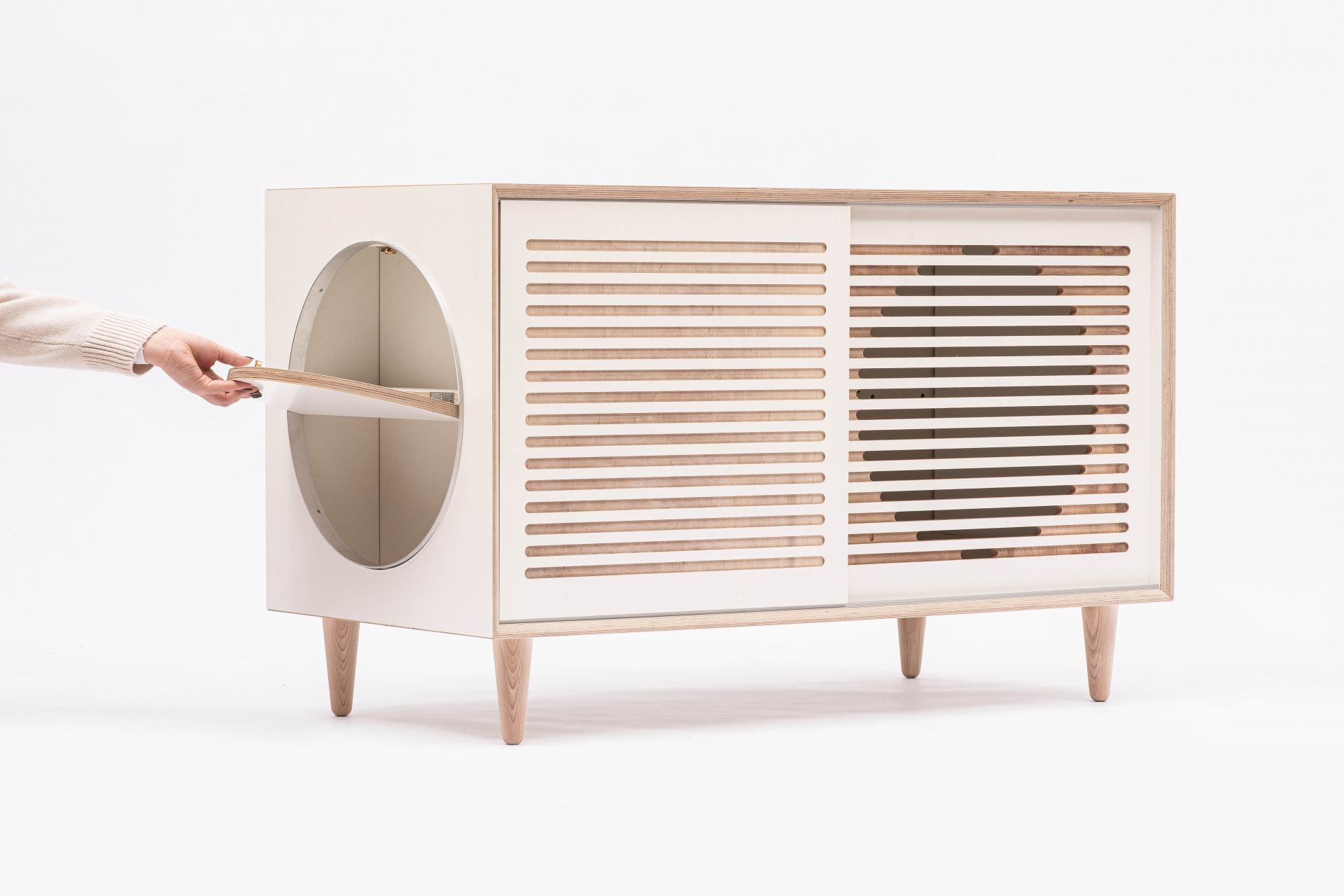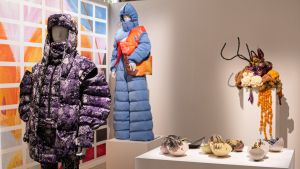Tilia 2002 Bt. and István Ulmann
Pet Flat – the intelligent kennel
Tilia 2002 and István Ulmann have decided to work together to create homes to pets which are functional, aesthetic, intelligent and even self-sufficient. Pet Flat kennels respond to the challenge of sustainability by using renewable materials on the one hand and embodying a design furniture that not only makes life easy for pet and owner alike but may also fulfil decorative purposes as part of home décor on the other hand.
 Manufacturer: Tilia 2002 Bt.
Manufacturer: Tilia 2002 Bt.
A TILIA 2002 Bt. was established 18 years ago with the objective of offering their expertise gained in interior design and carpentry and start their own company. Their operation is twofold: first, they run a retail business trading with raw materials for furniture –their suppliers include several large companies whose name in retail furnishing ring a bell – and second, the design and manufacture individual furniture and interior design. They always start the planning process by discussing their customer’s ideas and expectations in detail and they produce a 3-D workshop design to make sure the end product does match the buyer’s expectations. Their workshop is equipped with the machinery required for basic furniture-making and they are continually developing their equipment to achieve maximum efficiency. Usually, a group of 8 to 10 people works on a project. Besides the seasoned personnel, they also employ young people to pass on practical vocational skills that they regard as difficult to acquire during the training at school.
Designer: István Ulmann
István Ulmann, the designer who invented the concept of Pet Flat, graduated as an architect from the Miklós Ybl Faculty of Building Science. He went on to study as an architect at Pécs University where he obtained his master’s degree. During his studies, he spent one year in Spain at Universidad Politecnica de Valencia and attended a large number of workshops and exhibitions abroad. In 2015, he held his own workshop within the framework of EASA Malta attended by over 600 participants from Europe. His works have been on display at the Venice Biennale and at the 1st National Salon of Architecture in Budapest. He started his career at the Bord Architecture Studio in the representation of which he participated in several design competitions at home and abroad, and he won funding for the company to build Debrecen’s International School, Aquatic Spa and Budapest’s National Skating Centre. He was involved in working out the overall architectural and design concept of Budapest’s bid for the 2020 Olympics. In 2018, he set up his own studio and teamed up with fellow architects and interior designers to prepare plans for installations or expo pavilions and individual design for homeware and furniture.
More articles

The Hungarian Fashion & Design Agency Continues Its Operations Under the Name Creative Hungary Nonprofit Zrt.

BCEFW Young Talents Designers Featured in the Design POP-UP by ELLE Selection



